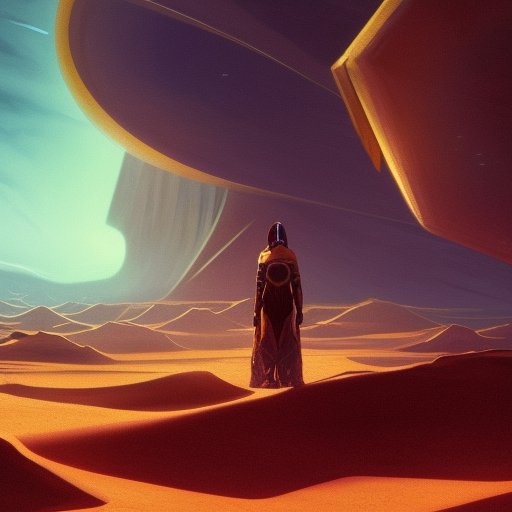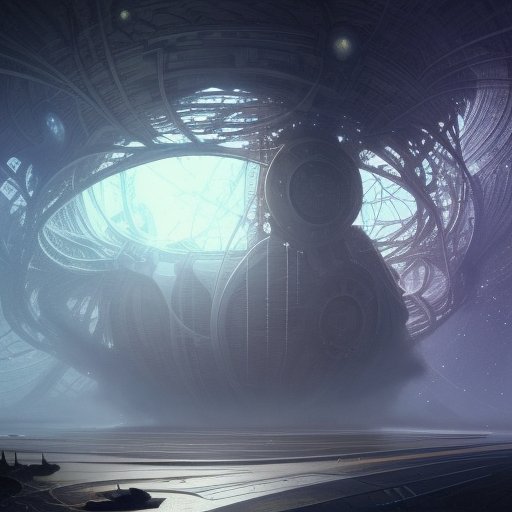
Greetings fellow space explorers! Are you tired of living on Earth? It’s time to pack your bags and set your course for the planet of Dune! In this article, we’ll discuss the reasons why moving to Dune is the ultimate escape for adventurous individuals seeking a new home. From the benefits of living on a planet without a centralized government to the challenges of living in one of the harshest environments in the galaxy, we will outline everything you need to know about making the big move. So buckle up and get ready for a wild ride, because Dune is calling your name!
I. Introduction
Buckle up, sci-fi fans, because we’re talking about the big, the bad, the iconic planet of Dune. If you’re a true believer in fantasy and adventure, then you’ve surely already heard of Frank Herbert’s legendary series, but if not, allow me to introduce you to the sand-swept world that has captured the hearts and minds of readers for decades.

Why should you consider packing up your bags and heading to Dune? For starters, it’s the planet that launched a thousand ships, inspiring countless stories, movies, and games. It’s a world unlike any other, with towering sand dunes, ancient ruins, and fierce creatures lurking around every corner.
But it’s not just the stunning scenery and endless mysteries that make Dune an attractive destination. With the earth on the brink of destruction, now more than ever, we need a new home, and Dune just might be the perfect spot. It’s a harsh world, but with a little grit and determination, we can not only survive, but thrive.
So why now? Why Dune in particular? Simply put, the time has come for us to embrace a new future. Our old world is crumbling around us, and the only way to ensure our survival is to look to the stars. Dune may be a harsh and unforgiving world, but it’s also full of promise and possibility.
So if you’re ready to take the plunge, if you’re ready to leave behind the troubles of the past and embrace a new beginning, then join me on this journey to the heart of the desert. It won’t be easy, but I promise you, it will be worth it. Welcome to Dune!
I. Introduction
The benefits of moving to Dune are numerous and varied, from the sense of adventure that comes with exploring an uncharted world to the practical advantages of a fresh start. Let’s take a closer look at what makes Dune such an attractive destination for those seeking a new beginning.

First and foremost, Dune offers a chance to escape the chaos and destruction of our current world. With climate change, political upheaval, and a host of other problems threatening our survival, it’s no wonder that many people are looking for a way out. Dune represents a fresh start, a new beginning, and a chance to build a better future for ourselves and our children.
But beyond the emotional appeal of starting anew, there are also practical benefits to moving to Dune. For one, the planet is rich in resources that could prove invaluable to our long-term survival. From natural gas and water reserves to minerals and metals that could be used for building and manufacturing, Dune has everything we need to create a thriving community.
In addition, Dune’s harsh environment could actually work to our advantage. Because the planet is so inhospitable to life, it has developed its own unique ecosystem that may hold the key to surviving and thriving on other planets. Learning to adapt to the extreme conditions of Dune could prepare us for a future in which we need to colonize other worlds in order to survive.
Of course, it’s not just about practical considerations. Moving to Dune also offers the chance for personal growth and adventure. The planet is teeming with ruins, artifacts, and secrets just waiting to be discovered, and the sense of exploration and discovery that comes with uncovering these mysteries can be both exciting and fulfilling.
I. Introduction
Surviving on Dune is not for the faint of heart. It’s a harsh and unforgiving world, and the challenges that come with living in such an environment can be overwhelming. But fear not, my friends, for with a little know-how and some careful planning, you can not only survive but thrive on this desert planet.

First and foremost, if you’re going to live on Dune, you need to understand the importance of water. Water is a scarce resource on this planet, and you’ll need to be vigilant about conserving every drop. Invest in high-quality water recycling systems and tools that can help you locate and extract water from the planet’s crust.
Next, you’ll need to learn how to protect yourself from the many dangers that lurk in the desert. Dune is home to all manner of vicious creatures, from giant sandworms to deadly sandtrout. Always carry a weapon with you, and never venture too far from your shelter without proper protective gear.
Speaking of shelter, you’ll need to make sure you have a sturdy and secure base of operations to call home. Invest in quality building materials, and take the time to learn the ins and outs of constructing a durable and reliable shelter that can withstand the harsh conditions on the planet.
Additionally, you’ll need to learn how to farm on Dune. The planet may be a desert, but with the right techniques and resources, you can grow crops and harvest a sustainable food supply. Invest in advanced irrigation systems and learn how to reuse waste as fertilizer to ensure healthy, thriving crops.
Finally, you’ll need to develop a keen understanding of the planet’s climate and weather patterns. From sandstorms to heatwaves, Dune is constantly throwing new challenges your way. Keep a close eye on the weather, and always be prepared to hunker down and wait out the worst of it.
Surviving on Dune won’t be easy, but with these tips and a little bit of determination, you can make a new life for yourself on this harsh and beautiful planet.
I. Introduction
If you thought the wonders of Dune ended with its stunning vistas and terrifying creatures, think again. The planet’s ecosystem is a marvel in and of itself, with a delicate balance of life and death that has evolved over centuries.

As you explore the world of Dune, you’ll come across a wide variety of plants and animals, each perfectly adapted to the harsh environment. From the towering spice-producing sandworms that roam the desert to the tiny, hardy creosote bushes that dot the landscape, every living thing on Dune has a role to play.
One of the most fascinating aspects of Dune’s ecosystem is its relationship with the all-important spice melange. This spice, which is only found on Dune, is a vital resource for humanity, granting increased longevity, enhanced mental abilities, and even the ability to fold space. But it’s not just humans who benefit from the spice – many of Dune’s creatures have evolved to feed on or otherwise interact with it, creating a complex web of dependencies that keep the ecosystem in balance.
Of course, life on Dune is not without its dangers. The vast, open desert is teeming with predators, from the fearsome sandworms to the savage fremen warrior tribes. But for those willing to take the risk, the rewards are beyond measure. You’ll discover hidden oases and ancient ruins, encounter strange and wondrous creatures, and be able to witness firsthand the incredible power of evolution at work.
So pack your bags, strap on your stillsuit, and prepare for the adventure of a lifetime. The wonders of Dune’s ecosystem await you, ready to be explored and marveled at. Who knows what secrets you’ll uncover or what dangers you’ll face, but one thing is for certain – your journey to Dune will be an unforgettable experience.
I. Introduction
Living on Dune is not for the faint of heart. While the planet holds endless promise, it also poses many dangers that must be taken seriously. The first and most obvious threat is the harsh climate. The temperature can fluctuate wildly from day to night, and sandstorms can strike without warning. It takes a strong will and a sturdy shelter to survive on Dune.

But the dangers don’t stop there. The planet’s ecosystem is also host to a variety of deadly creatures. Sandworms, for example, are massive creatures that burrow beneath the dunes and can swallow entire spice harvesters whole. Sandtrout, meanwhile, are small, worm-like creatures that are deadly to humans if they are ingested.
Even the smallest things on Dune can be perilous. The sand itself is often laced with dangerous chemicals that can cause severe burns or worse. And with such a harsh climate, it can be difficult to find clean water and edible food sources.
Perhaps the greatest danger facing colonists on Dune, however, is the potential for conflict. With so much at stake, tensions can run high, and disagreements can quickly turn deadly. It’s up to each individual to approach their new life on Dune with caution and respect for their fellow humans.
But don’t let these dangers dissuade you from taking the leap. While living on Dune is far from easy, it is also a unique opportunity to forge a new life on a world unlike any other. With the right mindset and the proper preparation, anyone can thrive on Dune. So buckle up, and get ready for the ride of a lifetime.
I. Introduction
The future of humanity on Dune is looking brighter by the day. With each passing year, we are learning more about this harsh yet beautiful world, and with that knowledge comes the potential for incredible growth and progress.

First and foremost, we must learn to adapt to our new environment. The sandstorms and heat waves can be deadly, but by working together and utilizing our technology, we can create safe and sustainable living conditions. It won’t be easy, but with teamwork and a little grit, we can make it work.
Of course, the real key to our success on Dune lies in our ability to harness the planet’s resources. The spice, in particular, is a valuable commodity that could change the course of human history. With its medicinal and metaphysical properties, the spice could unlock new levels of human potential and understanding.
But there are dangers as well. We must be careful not to exploit Dune’s resources to the point of exhaustion, and we must be aware of the potential consequences of tampering too much with the planet’s delicate ecosystem. We must strive for balance, even as we continue to push the boundaries of what is possible.
In the end, the future of humanity on Dune is up to us. We must be bold yet cautious, ambitious yet patient. We have the opportunity to create something truly special on this world, something that could shape the future of our species for generations to come. The road ahead won’t be easy, but with the right mindset and determination, anything is possible. So let’s roll up our sleeves and get to work. The future is waiting for us on Dune.
VII. Conclusion
So there you have it, fellow travelers. The case for leaving Earth behind and embarking on a new adventure on the planet of Dune is a compelling one. We’ve talked about the benefits of this harsh but beautiful world, the challenges you’ll face, and the incredible potential it offers for our future as a species. But ultimately, the decision to make the leap to Dune is one that only you can make.

It’s not for the faint of heart or the weak of will, but for those brave enough to take the plunge, the rewards are beyond measure. Imagine waking up each morning to the sight of the sun rising over towering sand dunes, or wandering through ancient ruins, discovering secrets long forgotten. Picture yourself surviving against all odds, pushing your limits and accomplishing things you never thought possible.
Of course, there will be risks, there will be setbacks, there will be moments of doubt and fear. But with a strong sense of adventure and a will to thrive, anything is possible on Dune. The stars are calling, and our future is waiting.
So what are you waiting for, brave adventurer? Pack your bags, say goodbye to the world you know, and set your sights on the unknown. The journey won’t be easy, but it will be worth it. The possibilities are endless, the potential for greatness unbounded. Make the leap to Dune, and don’t look back. The fate of humanity is in your hands.






